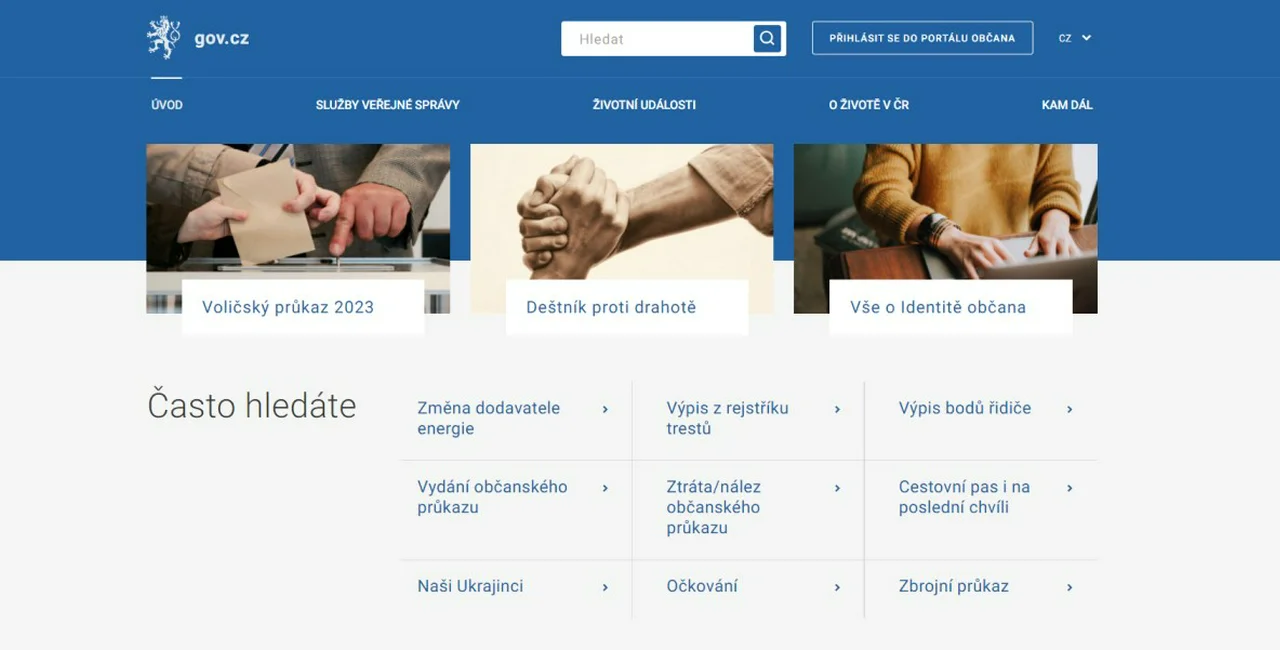The government yesterday approved a proposal to bring all state administrative websites under one single domain – named gov.cz. This will replace the current system of different administrative portals on different websites, and will simplify matters for citizens.
“We owe the citizens a state that operates in a clear, safe, and trustworthy manner," Deputy Prime Minister for Digitization Ivan Bartoš said in iDnes.
PARTNER ARTICLE
"Even though the websites of the ministries can be found on the internet, until now the citizen could not rely on [them] being official," said government spokesperson Anna Urbanová yesterday.
One of the advantages of a single website is greater cybersecurity and legal certainty when a citizen communicates with the state. The existence of different domains at present – such as mmr.cz and mpsv.cz – not only makes things more confusing and cumbersome, but also increases the risk of potential fraud and phishing via fake websites.
Indeed, attempts were made in autumn 2022 to scam people and steal their identity through fake pages of the Ministry of Labor and Social Affairs.
"The current unsatisfactory state means that the domain names of ministries and other central authorities were created in an uncoordinated manner, and the result is a large variance between their forms." - Anna Urbanová.
Countries such as Great Britain, Poland, and Estonia already have all state administrative websites based on the .gov domain.
Bartoš mentioned Wednesday that the process of website migration would take “several years,” but that the first changes will hopefully become apparent within the next nine months.
A push for digitalization
The government has in recent years been driving forward its digitalization efforts. The state’s Digital and Information Agency was established on Jan. 1, 2023 and acts as Czechia’s central administrative office for electronic identification and public administration information systems. In the near future, according to ČTK, citizens will be able to carry their driving license and electronic ID securely on their phones rather than in physical form.
One illustration of the government’s digitalization transformation is the “Citizen Identity” feature. The Citizen Identity is a centralized portal that allows people to use a range of public administrative services, such as the online land registry, online medical prescriptions, and the Citizen Portal (in which you can manage various government documents). They can be created with one’s banking identity of selected banks or with an eGovernment Mobile Key.
In the 2022 E-Government Development Index published by the UN, Czechia ranks 45th globally, behind neighbors Poland (34th), Germany (22nd), and Austria (20th).
Data boxes also made the headlines in 2022, and Czech residents can expect to see much more of them in 2023 and beyond. To streamline communication with government authorities, the data boxes allow people to file tax returns, communicate with courts, and submit documents to social security offices online.
For more information and required steps on creating a Citizen Identity, visit the government website that provides step-by-step instructions in English. For information on data boxes, visit mojedatovaschranka.cz.
Although the government recently reneged on its initial plans to make data boxes compulsory for everyone in 2023, self-employed people and businesses will have to create and use one by end-March 2023. Since the beginning of this year, data boxes are being automatically created for business and self-employed entities.
Currently ranked 19th out of 27 EU countries in the Digital Economy and Society Index 2022, the government will hope that the centralization of state administrative websites will be one of many moves that will boost the digitalization of the country.












 Reading time: 3 minutes
Reading time: 3 minutes 




























